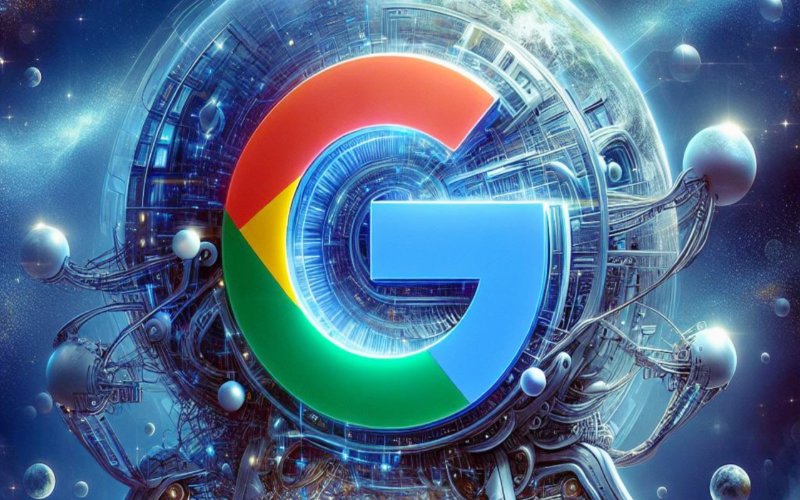Introduction
Artificial intelligence (AI) is rapidly advancing, with companies like Google and OpenAI leading the way. Recently, Google’s Gemini AI has come under scrutiny, with many questioning its authenticity. Is Google Gemini fake, or is it a genuine advancement in AI technology? This blog post aims to delve into the controversy, separating fact from fiction and providing a comprehensive understanding of the situation.
The Controversy Begins
What Sparked the Doubts?
The controversy around Google Gemini started with a demo video that showcased its capabilities. The video quickly gained millions of views and was praised for its seamless interaction and impressive features. However, it didn’t take long for critics to emerge, accusing Google of faking the demo to make Gemini appear more advanced than it actually is.
Initial Reactions
The initial reactions to the Gemini demo were overwhelmingly positive. Viewers were impressed by the AI’s ability to analyze images, interpret hand gestures, and engage in seemingly real-time conversations. But as the excitement settled, skepticism grew. Tech enthusiasts and experts began to dissect the video, pointing out inconsistencies and questioning the authenticity of the demo.
Unveiling the Truth
Google’s Admission
Google eventually admitted that the Gemini demo was not entirely real-time. The company clarified that the interactions were text-based and that the video had been edited for brevity and to reduce latency. This admission fueled further criticism, with many accusing Google of misleading its audience.
The Role of Marketing
It’s not uncommon for tech companies to enhance their demos for marketing purposes. However, the degree to which Google edited the Gemini demo raised ethical concerns. The video painted an unrealistic picture of the AI’s capabilities, leading to a backlash from both users and Google’s own employees.
Understanding the Technology
How Gemini Really Works
To understand whether Google Gemini is fake, it’s essential to look at how the AI actually works. Unlike what the demo suggested, Gemini relies heavily on text prompts and pre-recorded interactions. While it is capable of impressive feats, it does not yet support real-time voice and video input as the demo implied.
The Potential of Gemini
Despite the controversy, Gemini is a powerful AI with significant potential. It excels in processing text and images, and its multimodal capabilities are a step forward in AI development. However, it’s crucial to manage expectations and understand that the current technology is not as advanced as the demo suggested.
Comparing with Competitors
Gemini vs. ChatGPT
One of the main reasons for the scrutiny of Gemini is its comparison with OpenAI’s ChatGPT. Many believe that Google exaggerated Gemini’s capabilities to compete with ChatGPT, which has set high standards in the AI community. This competitive pressure might have led Google to enhance its demo beyond the AI’s current abilities.
Benchmark Performance
When it comes to benchmarks, Gemini has shown promise, but it falls short in some areas compared to GPT-4. For example, while Gemini performs well in certain tasks, it does not consistently outperform GPT-4 in comprehensive benchmarks. This discrepancy highlights the need for transparency in AI capabilities and marketing.
Ethical Considerations
The Importance of Transparency
In the world of AI, transparency is crucial. Users need to trust that the technology they are interacting with is represented accurately. Google’s decision to edit the Gemini demo raises questions about ethical practices in AI marketing. It’s essential for companies to provide clear, honest information about their products.
The Impact on User Trust
Misleading demos can have a lasting impact on user trust. When users discover that the technology does not perform as advertised, it can lead to disappointment and skepticism. For AI to be widely adopted and trusted, companies must prioritize honesty and transparency in their marketing efforts.
Industry Reactions
Criticism from Experts
The AI community was quick to react to the controversy surrounding Google Gemini. Experts in the field criticized Google for creating unrealistic expectations and potentially damaging the credibility of AI technology. Many stressed the importance of ethical marketing and accurate representations of AI capabilities.
Support for Transparency
Despite the backlash, some industry leaders have expressed support for Google’s commitment to transparency moving forward. They acknowledge that while the initial demo was misleading, Google’s willingness to address the issue and clarify the AI’s real capabilities is a positive step.
Real-World Applications
Current Uses of Gemini
Even with the controversy, Gemini AI is being utilized in various real-world applications. Its ability to process text and images makes it valuable in fields such as healthcare, where it can assist in analyzing medical images and providing diagnostic support. Businesses are also exploring its potential for customer service and data analysis.
Future Potential
Looking ahead, Gemini has the potential to revolutionize multiple industries. As Google continues to refine the technology, we can expect more advanced features and broader applications. The AI’s multimodal capabilities could lead to innovations in education, entertainment, and beyond.
Lessons Learned
Importance of Honest Marketing
One of the key takeaways from the Gemini controversy is the importance of honest marketing. Tech companies must balance showcasing their products’ potential with providing an accurate depiction of their current capabilities. This balance is crucial to maintaining user trust and fostering long-term adoption of AI technologies.
Building User Trust
Rebuilding trust after a controversy can be challenging. For Google, this means being transparent about Gemini’s development and progress. Regular updates and honest communication will be essential in regaining user confidence and demonstrating the AI’s true value.
User Expectations
Managing Expectations
For users, it’s important to manage expectations when it comes to emerging technologies like AI. While demos and marketing materials can be exciting, understanding the current limitations of the technology is crucial. This realistic perspective helps users appreciate the advancements while recognizing the areas that still need improvement.
Engaging with the Technology
Despite the controversy, users should continue to engage with and explore Gemini AI. By providing feedback and participating in beta programs, users can contribute to the AI’s development and help shape its future iterations. This engagement is vital for the technology’s growth and refinement.
Comparing AI Models
Gemini vs. GPT-4: A Detailed Comparison
To fully understand the implications of the controversy, it’s helpful to compare Gemini AI with its main competitor, OpenAI’s GPT-4. While both models have impressive capabilities, their strengths and weaknesses vary. Analyzing these differences provides a clearer picture of where each AI stands in the current landscape.
Performance Metrics
In performance metrics, GPT-4 has shown consistent superiority in several benchmarks. However, Gemini’s multimodal approach offers unique advantages in specific applications. Understanding these nuances helps users and developers make informed decisions about which AI model best suits their needs.
Moving Forward
Google’s Commitment to Improvement
Google’s response to the Gemini controversy indicates a commitment to improvement and transparency. By addressing the criticisms and focusing on refining the technology, Google aims to build a more reliable and trustworthy AI assistant. This dedication is crucial for the long-term success of Gemini.
The Road Ahead
As AI technology continues to evolve, the road ahead for Gemini looks promising. Google’s ongoing development efforts and the potential for groundbreaking advancements mean that Gemini could soon meet the high expectations set by the initial demo. Users should stay tuned for updates and be prepared for exciting developments in the near future.
Conclusion
The question “Is Google Gemini fake?” has sparked significant debate and scrutiny. While the initial demo video was misleading, it’s important to recognize the genuine potential of Gemini AI. Google’s commitment to transparency and continuous improvement suggests a bright future for this technology. By staying informed and engaged, users can look forward to experiencing the true capabilities of Gemini as it evolves. The lessons learned from this controversy highlight the importance of honest marketing and user trust in the rapidly advancing field of artificial intelligence.
Also visit on techitl.com.




